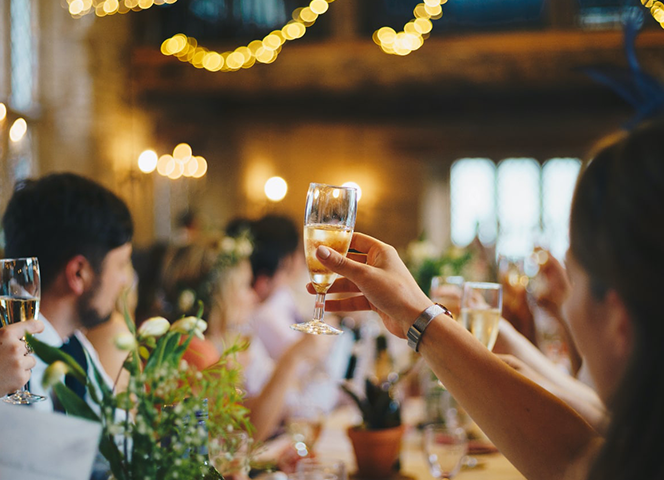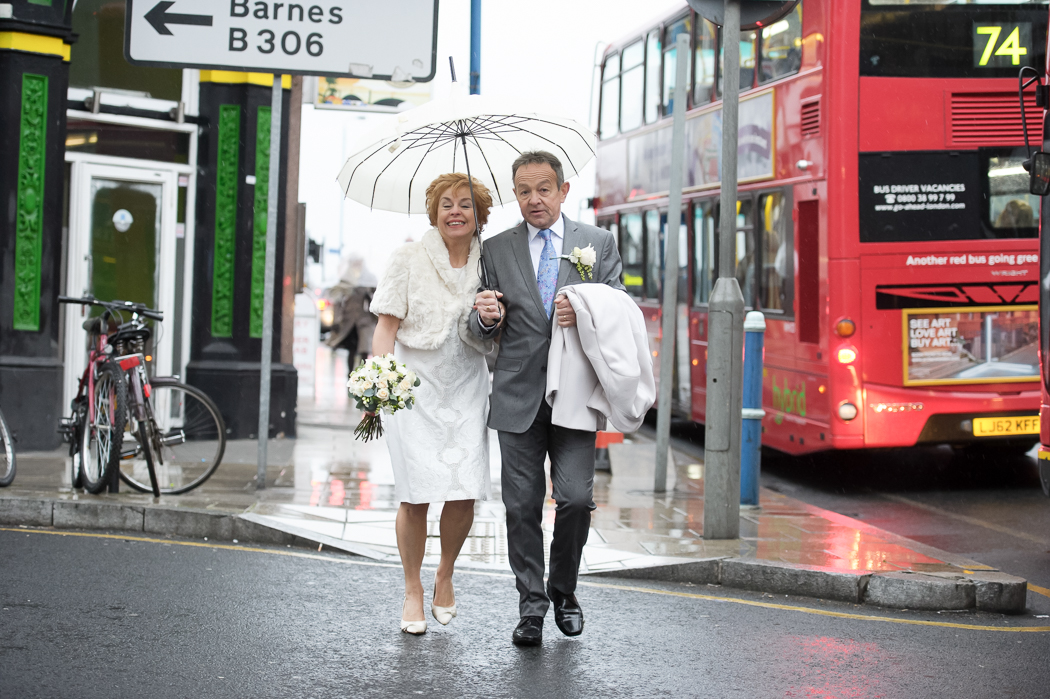Planning an ethical and sustainable zero-waste wedding
We’ve seen what some people are doing wrong, but how can you combat that? Hosting a zero-waste wedding doesn’t have to be hard. Let’s discover how you can make each aspect of your big day more eco-friendly.
Eco-conscious wedding attire
Looking good at your wedding is a must. But that doesn’t mean you have to compromise when it comes to your sustainability efforts. There are a handful of ways you can take a green approach while still looking the part.
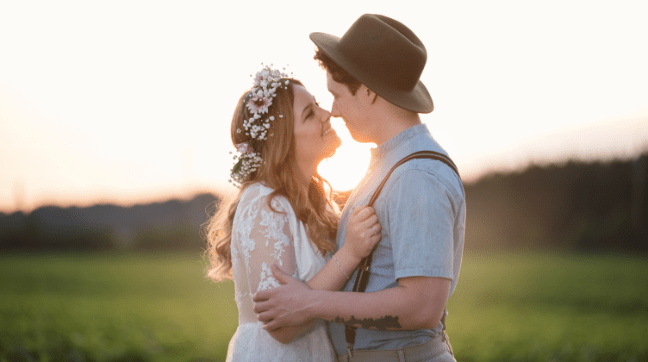
Eco-friendly materials
It’s easier than it’s ever been to find a wedding dress or a suit which have been manufactured from sustainable materials. Thankfully, satins, hemp-based silks, organic cotton knitted lace and general fairtrade products are all common bases of modern dresses.
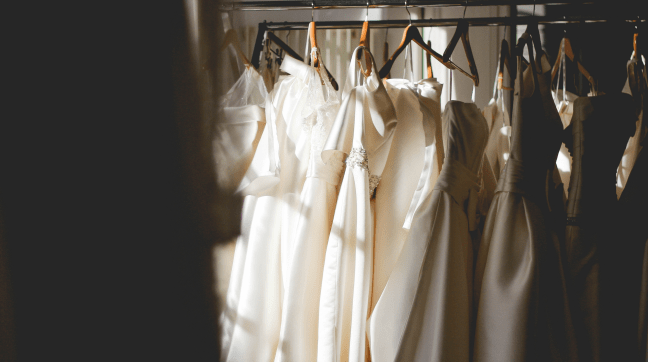
Renting your attire
Renting your dress or suit for your big day is also a viable option. There are loads of branded designs available, and this means you won’t be responsible for the construction of a garment which isn’t made from sustainable resources.
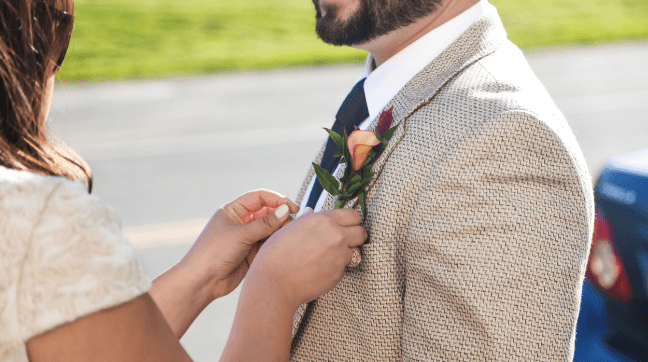
Choosing alternative attire
If you’re not too hung up on having a traditional wedding, there’s also the option of dressing in something which you know is eco-friendly. Encourage your guests to do the same if you really want to hammer home the sustainable theme of the wedding.
Ethical conflict-free rings
Whether it’s your engagement ring or wedding ring, there are ways you can ensure the precious stone you’re using has been sourced ethically.
Research the jeweller
Find out as much as you can about a jeweller before you purchase from them. If you’re not sure what to look for, try to find signs like:
- Funding for projects in communities where diamonds are ethically sourced
- The supporting of initiatives which ensure the safe production of diamonds and precious gems
- Open promotion about the fact their gems are sourced ethically
Speak to them first
If you can’t find any signs of their ethical nature, there’s always the option of reaching out and directly asking a supplier where their diamonds come from.
Consider asking them to be direct with their answer. If they aren’t clear about the origin of their product, it might be wise to turn elsewhere.
Avoid areas of conflict
While most countries have developed a fair and ethical production of diamonds, some areas remain questionable.
If you want to be completely sure you’re buying a diamond from a conflict-free zone, avoid producers like Zimbabwe, Angola, DR Congo, Ivory Coast and Liberia.
You don’t have to compromise on the quality of your ring just because you’re choosing an ethical option. Many diamond retailers have made this a priority in recent years, so you’ll have plenty to choose from.
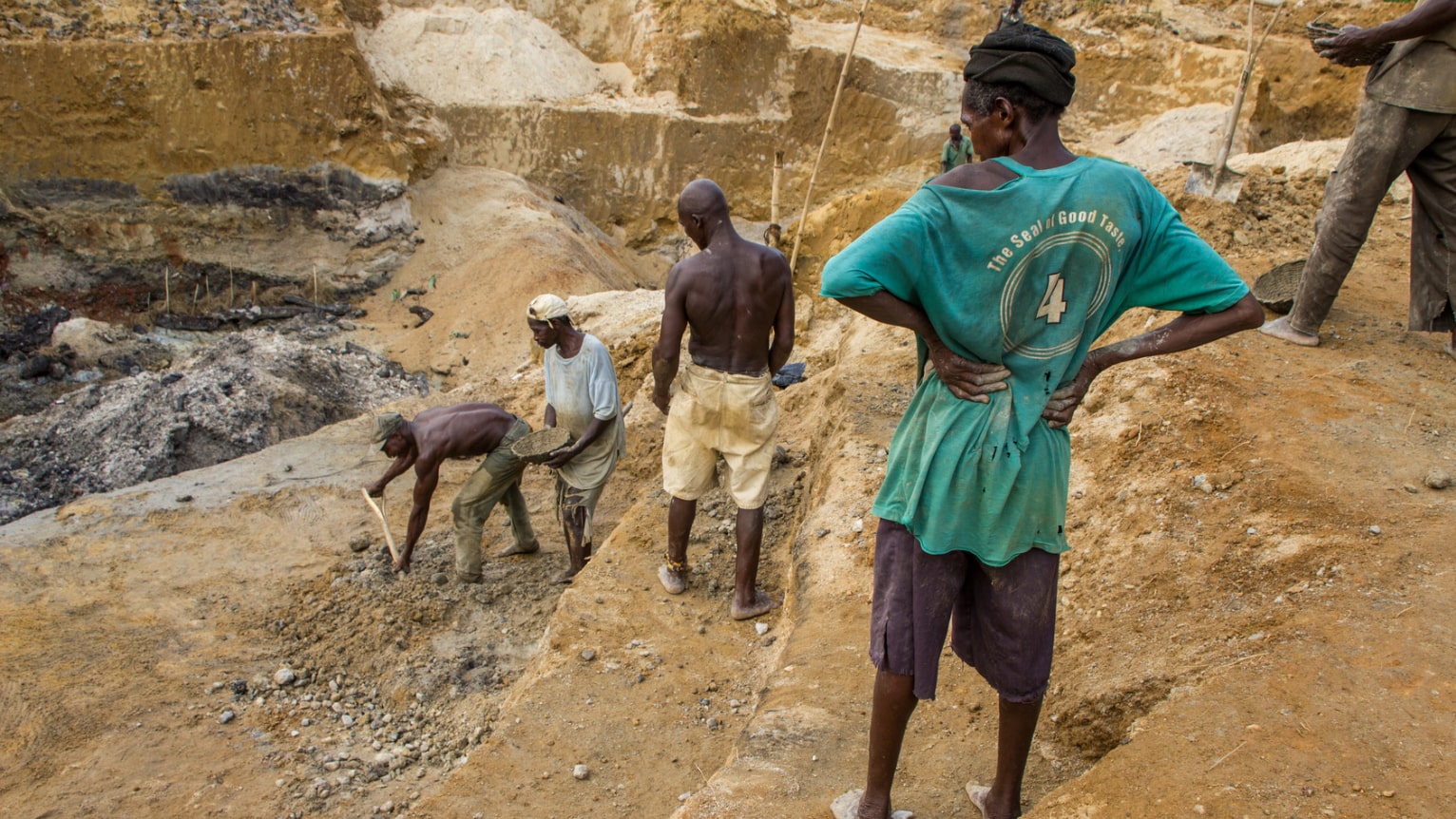
Conscious consumer wedding registry
If you’re asking your guests to come with a gift from a wedding registry, you can give them an entirely sustainable list of options to choose from. Here are a few examples of what you could include:
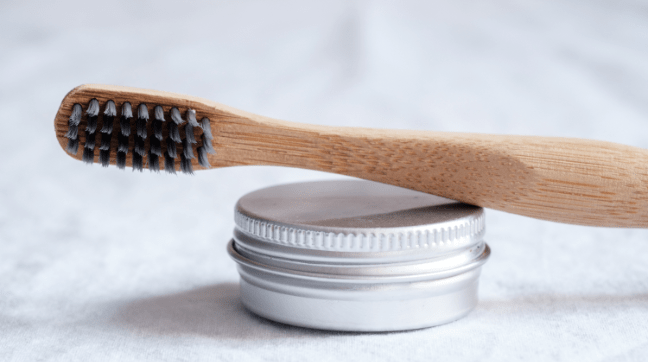
Earth-friendly gifts
If you want to take a more eco-friendly approach to life beyond the wedding day itself, this is a great opportunity to get a helping hand. You can ask for gifts like solar panel chargers, bamboo toothbrushes, electric lights or even a compost bin.
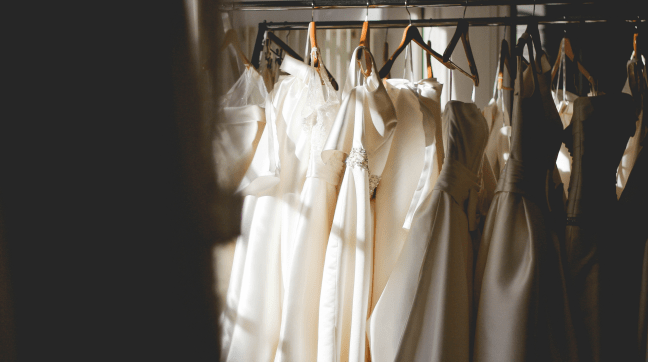
Fairtrade products
Looking for homeware which could genuinely make a positive difference to the lives of people in developing countries? You can find things like rugs, cutlery and even tables on websites such as Ten Thousand Villages.
These items are produced from sustainable ingredients by people living in third world countries. As it’s fairtrade, they take a healthy cut of all profits made on anything sold.
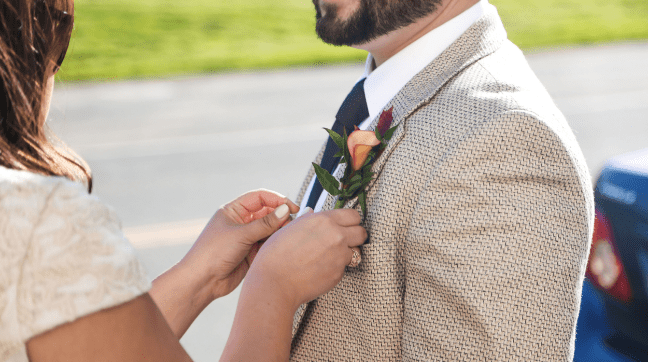
Small and local gifts
Investing in local communities is good for everyone. But it’s especially handy if you’re trying to reduce your wedding’s carbon footprint. Purchasing from people in your community will mean there’s far less fuel being burned to get your presents to you.
The key here is to think about how each item on your registry could have an impact on the environment. Is what you’re asking for going to come from a sustainable source?
Organic and low-impact flowers
While all flowers are by their very nature “organic”, sustainability can still be taken into account when it comes to decorating your wedding.
Aside from the carbon footprint you accrue when transporting flowers from across the world (most flowers used in Western Europe are grown in Kenya, Colombia, Vietnam and Ecuador), there can also be issues of exploitation in the supply chain.
In extreme instances, it’s been reported that women in Colombia can work for 15 hours a day, earning just £24 a week. That’s less than half the living wage in the country.
There are steps you can take to avoid funding these kinds of enterprises:
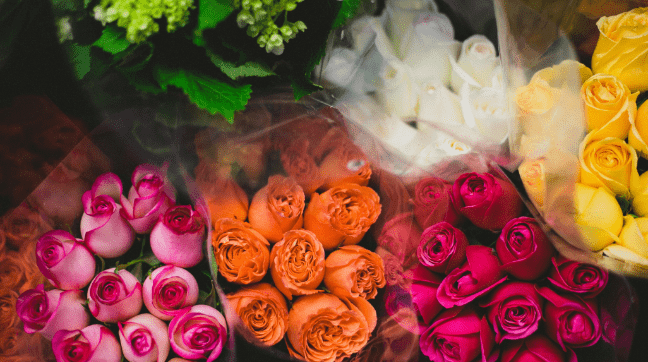
Buy local and seasonal flowers
Using a website like Flowers from the Farm, you can search for the exact type of flower you want, even specifying by things like pesticide usage. This allows you to make a conscious and measured choice about the distance your flowers have to travel and the impact you might be having.
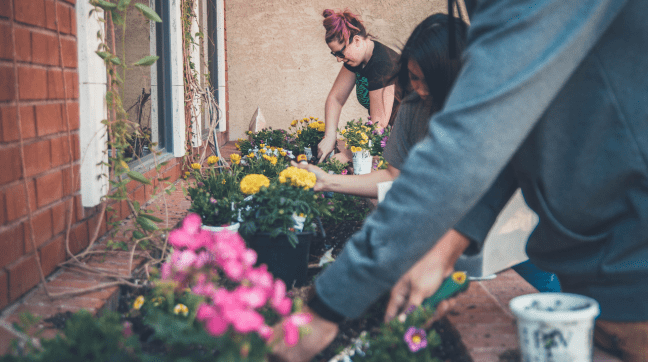
Grow your own
A tried and tested method, there’s no harm in cutting out the middleman and growing your own. Even if the finished product isn’t as polished as what you might get from a professional florist, there’s a certain charm to self-grown decorations at a wedding.
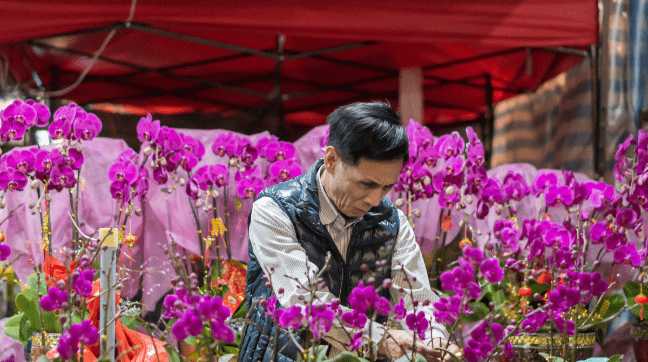
Check for certification
Organisations like LEAF, the Soil Association and the Rainforest Alliance are all quality-checkers when it comes to the ethicality of flowers being sold in the UK. Look for their stamp of approval on any bouquet you’re buying.
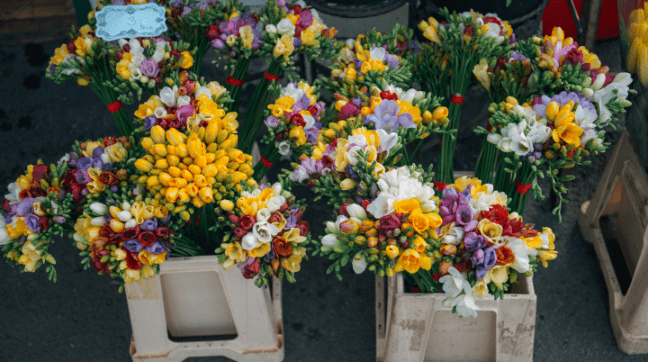
Find a sustainable florist
As with most sectors, there are a growing number of florists who are making sustainability a priority. You can spot a sustainable supplier by looking for those who:
- Don’t use floral foam or plastic
- Source local or ethically certified flowers
- Are transparent about how they work and where their flowers come from
Who would have thought so much consideration went into something as simple as a flower? Make sure to keep all this in mind when choosing your bouquets.
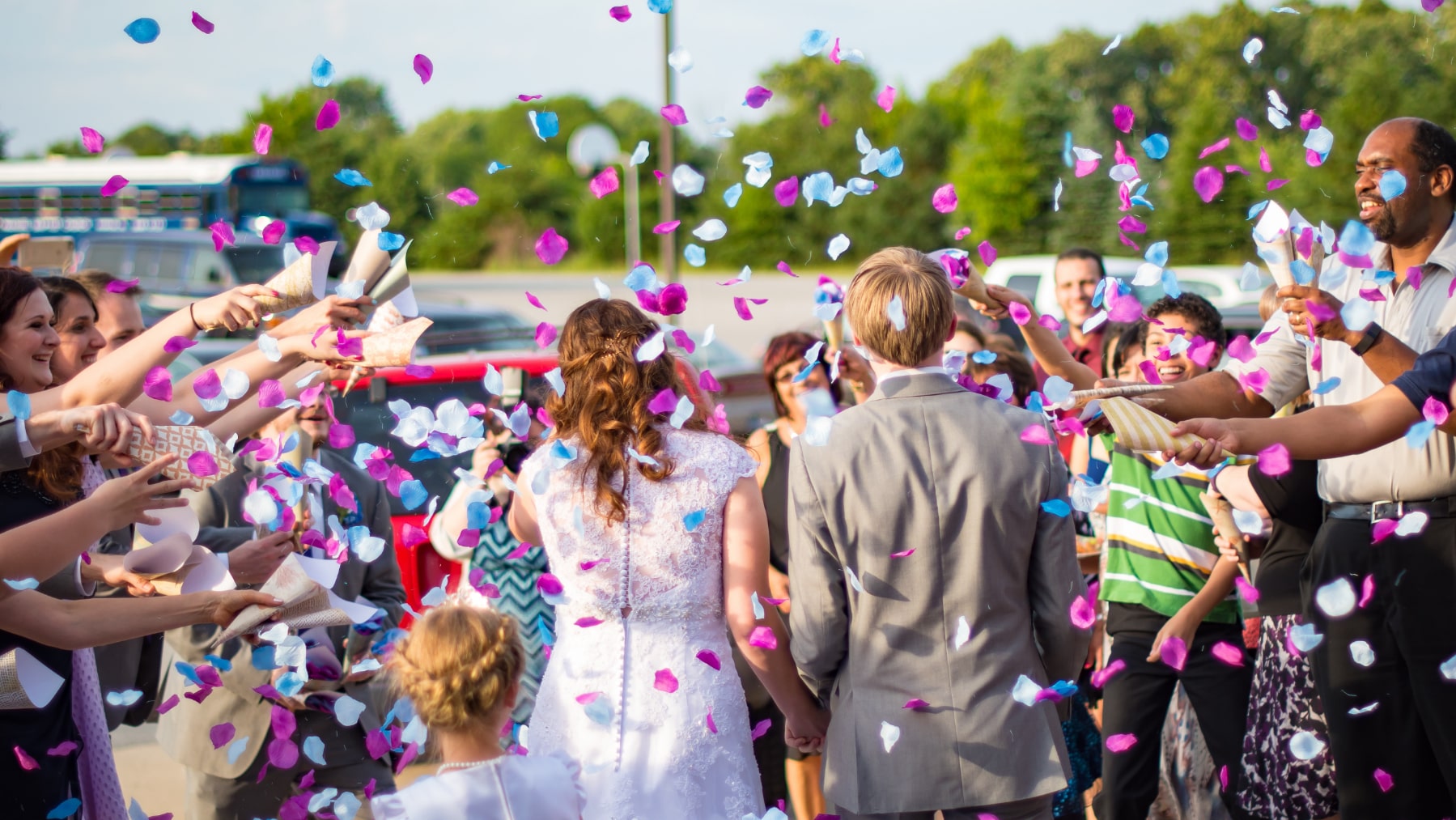
Eco-friendly décor
You don’t have to compromise on your perfect décor just because you’re trying to make your wedding as green as possible. There are a number of clever techniques you can use to remain sustainable without sacrificing the aesthetic appeal of your big day.
Lighting
Make the most of the daylight while you can. Setting up solar panels during this period can help to make a big difference later in the day. Collecting enough energy at this point could mean your entire evening is lit by a sustainable source.
Failing that, you could employ the use of hundreds of beeswax candles. These can hang from the ceiling and provide natural lighting for the reception.
Place cards
Any form of paper signage which you use can be sourced ethically, or even replaced altogether. When it comes to place cards, bamboo or recycled options are the best way to go.
For your wedding invites, think instead about sending out electronic save-the-dates, and asking people to confirm their attendance online. If you know particular guests are not computer-savvy, reach out to them via the phone.
Confetti
There’s a relatively easy alternative to traditional confetti that comes in the form of biodegradable, dried out petals. These not only retain the aesthetic appeal of the original product but break down naturally in the environment without doing any damage.
Other natural materials
From the tablecloth to your napkins, there are a series of decorations which you can find made from materials like hessian, hemp or pure linen.
When it comes to tableware, consider using rustic natural wood, sourced from sustainable forests. This extends to the likes of tables, bowls and even cutlery.
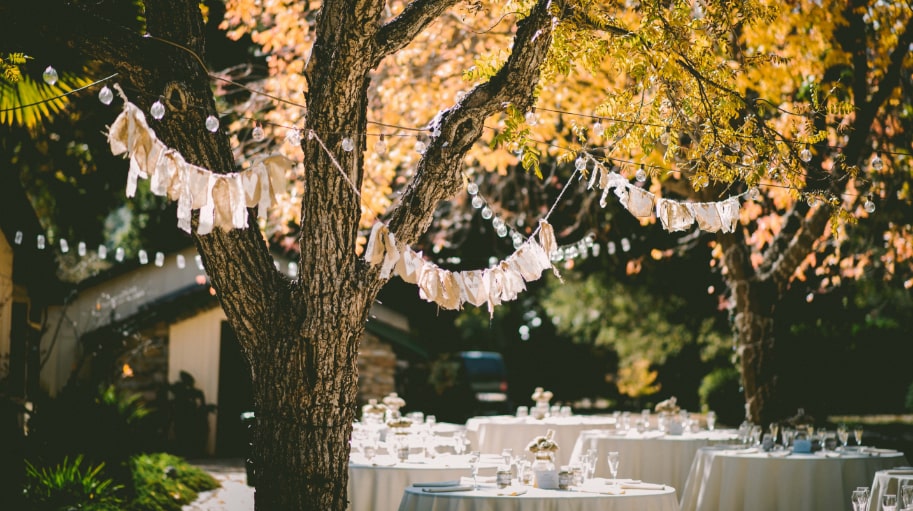
Eco-friendly wedding venues
Yes, even the decision of where to host your big day can have a big impact on how sustainable it is. Once again you have a selection of options to choose from.
Outdoors
Having your wedding take place outdoors means you’ll be able to make the most of natural sunlight. You’ll be able to find botanical gardens and refurbished barns, which offer the perfect venue for anyone looking to ensure their wedding locale is having the minimum impact possible on the surrounding ecosystem.
Centralised location for ceremony and reception
Hosting both events in the same place means there’s minimal need for guests to travel from one place to the next. It sounds simple, but it’ll make a massive difference to your wedding’s overall carbon footprint.
Green hotels
Some hotels are greener than others. They’ll have a strong recycling policy in place, use energy-efficient appliances and operate using a lot of biodegradable products. These are all questions you can ask a potential host venue before you make a decision.
Sustainable and organic food and catering
This is another factor we often overlook at a wedding. While it’s common to take guests’ dietary needs into account, not much thought is given to where and how our food arrives on the plate.
If food wastage and sustainability matters to you, you can find a catering company who keep all of the following in mind:
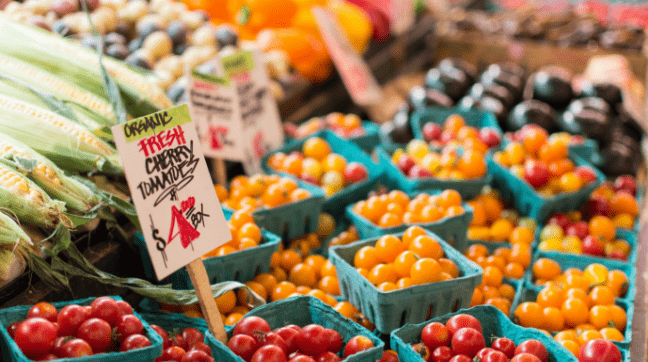
Locally sourced
We’ve already discussed the benefits of localised sourcing when it comes to mileage. But it also helps smaller farming communities to thrive. In the process, it increases the likelihood of others being able to get produce from their local community in the future.
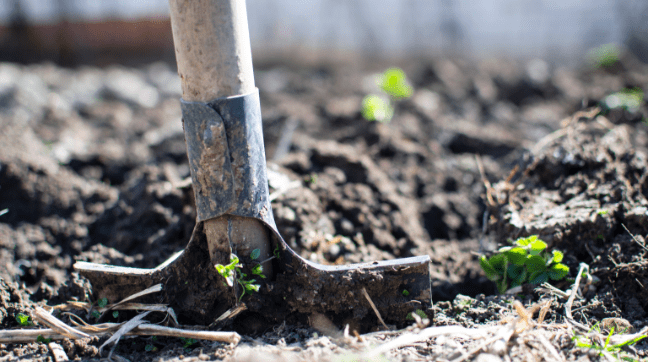
Organically produced
While pesticides have their benefits, they also carry harmful chemical pollutants which can have a negative impact on the environment. Make sure to ask your caterer if their products conform to the certified standards.
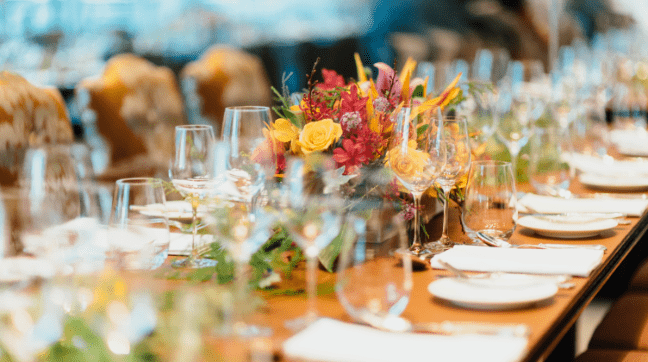
Tableware offered
You can always provide this yourself, but if you are relying on a catering company for everything, make sure they offer sustainable products. That means their cutlery is reusable, recyclable and biodegradable.
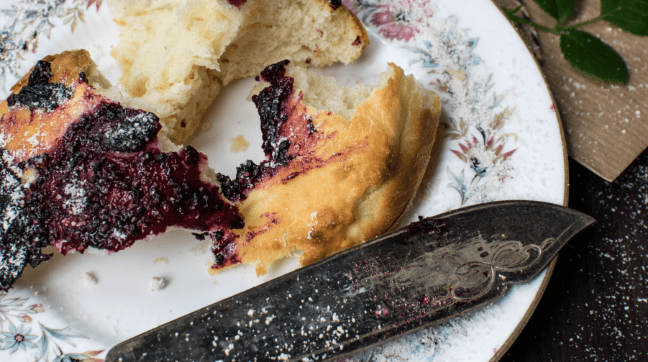
Food waste policy
Ask them what their policy is regarding food that is either unused or not eaten after being prepared. Most sustainable catering companies should offer food that hasn’t been cooked to food banks or charities. Meanwhile, food that didn’t get consumed can be turned into compost.
Be sure to keep this in mind when choosing your caterers. Ask what their policy is on all of these factors before you make a final decision.
Ways to reduce your carbon footprint
We’ve looked at a lot of intricate ways you can make your wedding more sustainable. But what about more top-level planning? Here are a few suggestions to help keep your CO2 emissions to a minimum.
A selective guest list
You’ll want to share your big day with those who are important to you. Part of that means making tough decisions about who to include and who not to.
Being more selective will have a directly beneficial impact on your carbon footprint. With fewer people travelling to your event, you’re going to naturally have a smaller impact on the amount of CO2 emitted as a result.
Pick the right time of year
It might be harder to find a free slot in the hotter months, but doing so will mean having to consume less energy. The natural heat provided by the warmer seasons will help to keep you and your guests comfortable, without needing to use artificial devices.
Organise group transport
The fewer cars on the road, the lower the level of emissions. To go to the next level, you could even swap out traditional methods for something like a horse and carriage.
Planning an eco-friendly wedding isn’t easy. But if you follow the advice we’ve offered here, you’ll find it doesn’t have to be as much of a challenge as you may first suspect.
This post was written by 77 Diamonds and is part 2 of The Full Guide to a Sustainable Wedding shown here

